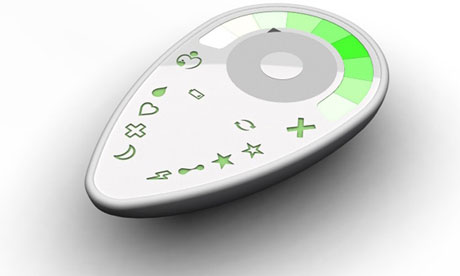Developers of a new fertility monitoring system claim it is as effective as in-vitro fertilization in helping women become pregnant. It could allow better treatment for the infertile without using drugs, invasive techniques or unethical means.
New Zealand-born Shamus Husheer, founder of the company Cambridge Temperature Concepts, told the Wall Street Journal that six months’ use of his DuoFertility monitor has the same success rate as a round of IVF, according to a peer-reviewed study his company has published.
“From a woman’s perspective, IVF is pretty awful. With us, all they have to do is wear a patch,” Husheer said.
The monitor system uses a small temperature sensor which a woman tapes under her arm and wears all night and preferably during the day.
The monitor is synchronized with a base station connected to a PC to record a woman’s body basal temperature, which is lower before ovulation than after.
A small increase in temperature of about 0.78 degrees Fahrenheit takes place within 48 hours of ovulation and will remain elevated until a woman’s next period.
Recording the body basal temperature has historically been difficult and depends on taking temperature with regularity upon waking each morning.
The monitor uses the data to identify the day of a woman’s ovulation and to suggest the ideal three-day window to try to conceive. A woman can also use the base station to report other events such as the beginning of her menstrual cycle, interrupted sleep, or illness.
The DuoFertility website characterizes the product as a “personal fertility coach” and as an alternative to lengthy waits to see fertility experts.
The device has been licensed by the British National Health Service and is undergoing approval by the U.S. Food and Drug Administration. The NHS is considering using the system for its patients with unexplained fertility, who number 4,000 per year.
In the U.K. an IVF cycle costs $7,200, while the DuoFertility system costs about $800.
IVF has also faced ethical objections. The procedure often creates “leftover” human embryos whose lives are at risk. Catholic ethicists also object to IVF’s separation of procreation from marital sex.
Sources
